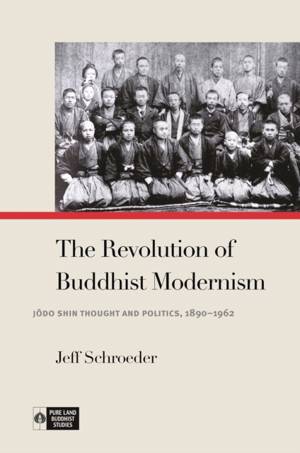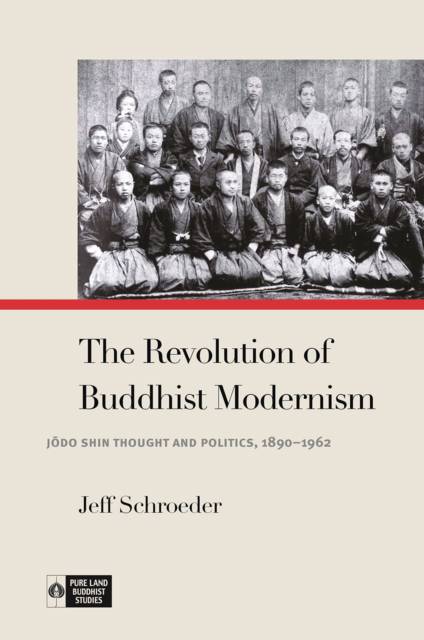
- Afhalen na 1 uur in een winkel met voorraad
- Gratis thuislevering in België vanaf € 30
- Ruim aanbod met 7 miljoen producten
- Afhalen na 1 uur in een winkel met voorraad
- Gratis thuislevering in België vanaf € 30
- Ruim aanbod met 7 miljoen producten
Omschrijving
Reacting to nineteenth-century forces of colonialism and globalization, Buddhist reformers across Asia strove to modernize Buddhist teachings, practices, and institutions. "Buddhist modernism" was typically characterized by disbelief in the supernatural, rejection of ritual, deinstitutionalization, and egalitarianism. The Revolution of Buddhist Modernism provides an account of the upheaval that took place within the world of Japanese Jōdo Shin (True Pure Land) Buddhism when scholar-priest Kiyozawa Manshi (1863-1903) initiated modernist reforms. Kiyozawa and his disciples, especially Soga Ryōjin and Kaneko Daiei, reenvisioned Pure Land teachings as a path to awakening in the present world rather than rebirth in a faraway Pure Land after death. This doctrinal reinterpretation led to a range of revolutionary institutional reforms, including new experiential methods of Buddhist studies, democratization of sect institutions, and enhanced cooperation with Japan's imperialist state.
By combining intellectual history with institutional history, The Revolution of Buddhist Modernism reveals deep connections between Buddhist thought, Buddhist institutions, and national and global politics. It tracks the chaotic, fascinating history by which modernist Buddhist ideas came to be grounded in Buddhist institutions and authoritative for Buddhist communities, offering readers a compelling, ground-level view of Buddhist modernism--and traditionalism--in action.Specificaties
Betrokkenen
- Auteur(s):
- Uitgeverij:
Inhoud
- Aantal bladzijden:
- 332
- Taal:
- Engels
- Reeks:
Eigenschappen
- Productcode (EAN):
- 9780824893941
- Verschijningsdatum:
- 30/11/2022
- Uitvoering:
- Hardcover
- Formaat:
- Genaaid
- Afmetingen:
- 152 mm x 230 mm
- Gewicht:
- 557 g

Alleen bij Standaard Boekhandel
Beoordelingen
We publiceren alleen reviews die voldoen aan de voorwaarden voor reviews. Bekijk onze voorwaarden voor reviews.











